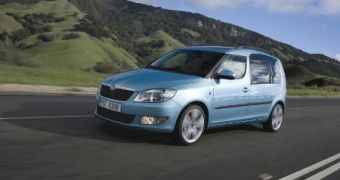Seeing how most of the cars currently going up and down local roads and international highways run on your typical gas-emitting fuels, civil engineers at MIT believe that, simply by improving driving conditions, pollution resulting from fuel consumption could be reduced by approximately 3%.
Let us explain their arguments: the current state of most pavements compels vehicle engines to make extra efforts to satisfy their drivers' demands, due to the fact that the roads are not stiff enough and thus the tires need an extra amount of power to propel the car at the required speed.
Naturally, in order to generate more power, the engine is forced to burn more fuel than it would under more “driving-friendly” conditions, which means that gas emissions resulting from your daily traffic are also higher than they absolutely have to be.
According to ecogeek.com, researchers argue that the quality of most present-day roads puts as much pressure on the engine as driving “continuously up a slope” would.
Thus, preliminary reports show that an extra 273 million barrels of crude oil find themselves unnecessarily – and sometimes even unknowingly – burnt for no valid reasons, something that could be easily prevented should the governments go an extra mile and invest in their countries' roads.
Mehdi Akbarian, a PhD student at MIT, investigating this matter together with professor Franz-Josef Ulm, claims that “We’re wasting fuel unnecessarily because pavement design has been based solely on minimizing initial costs more than performance,” reports mit.edu.
Given the fact that it will probably take a while before electrical or solar-powered cars find themselves the public's first choice when it comes to transportation, it is perhaps a good idea for high officials to dig deep in their pockets and deal with the matter at hand, not only to reduce pollution, but also to ensure better driving conditions for citizens throughout the world.

 14 DAY TRIAL //
14 DAY TRIAL //